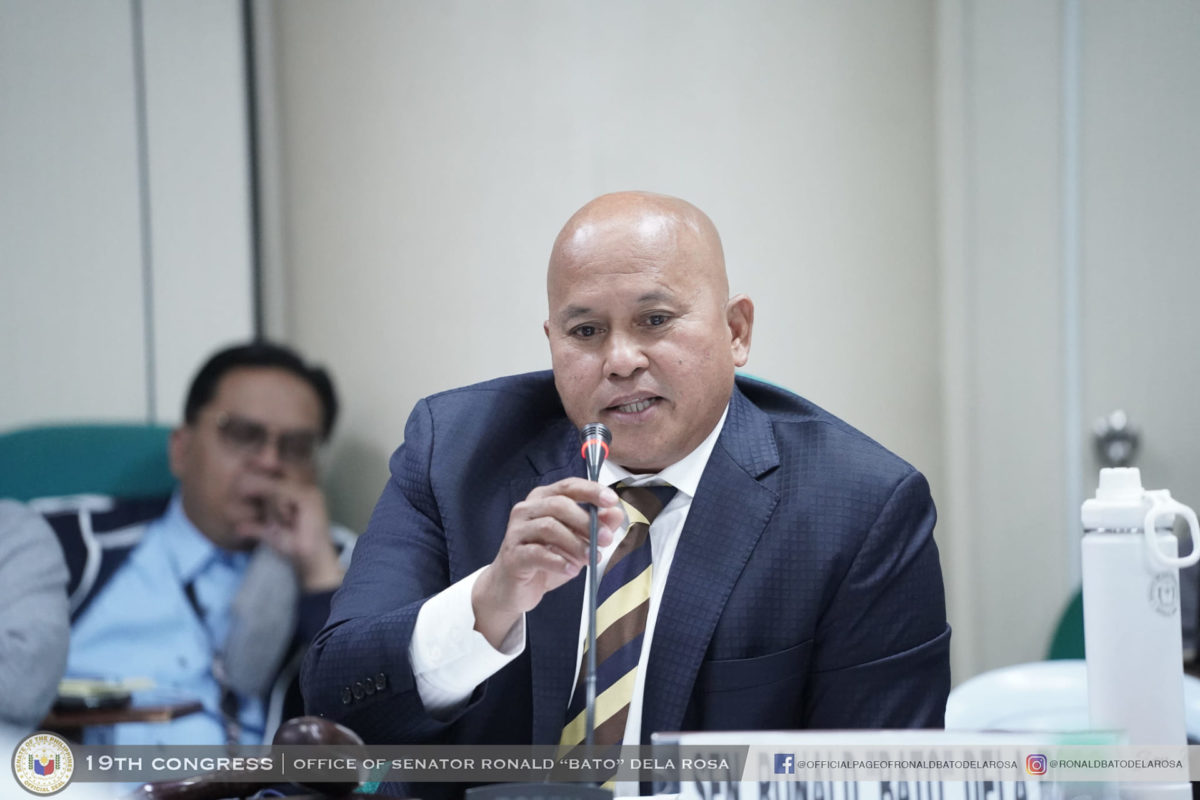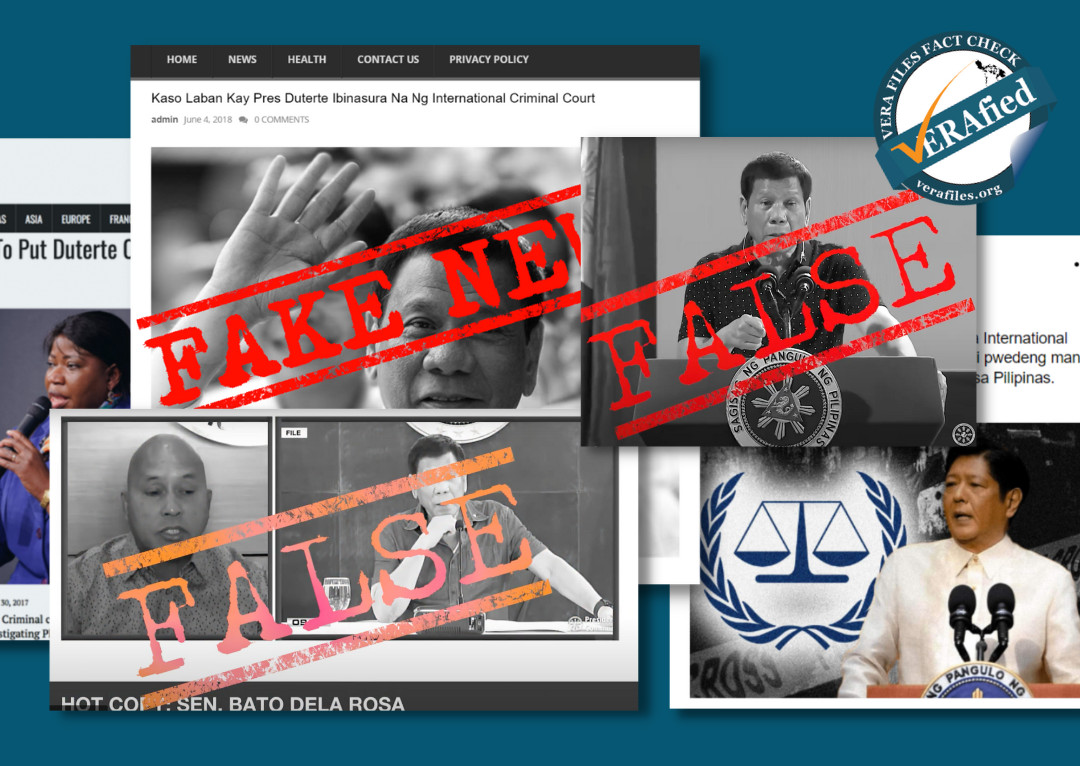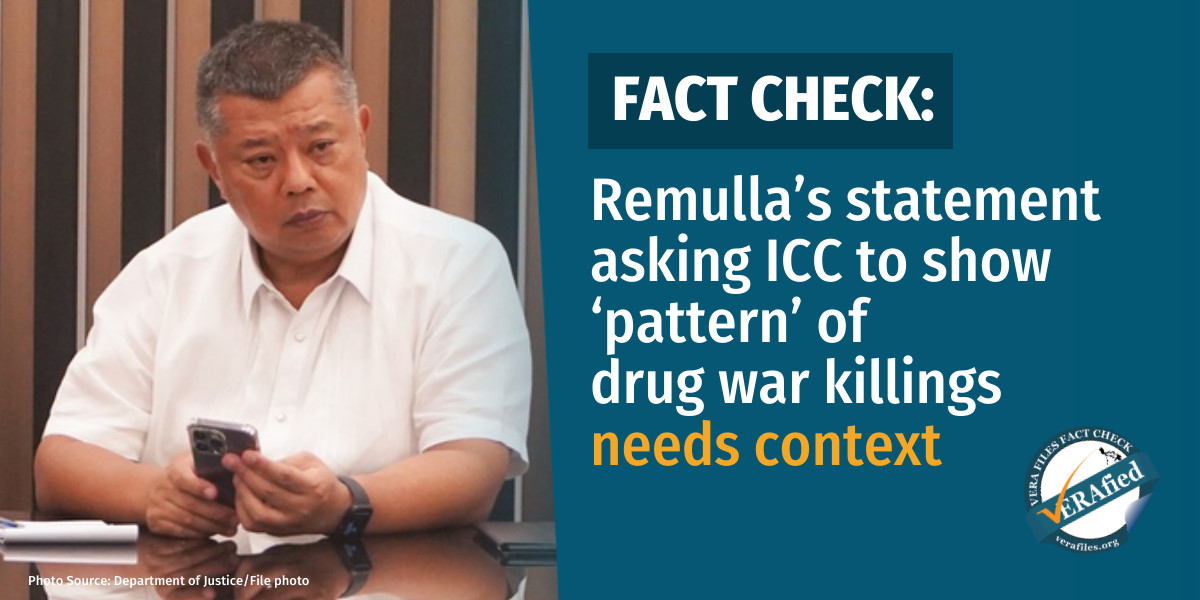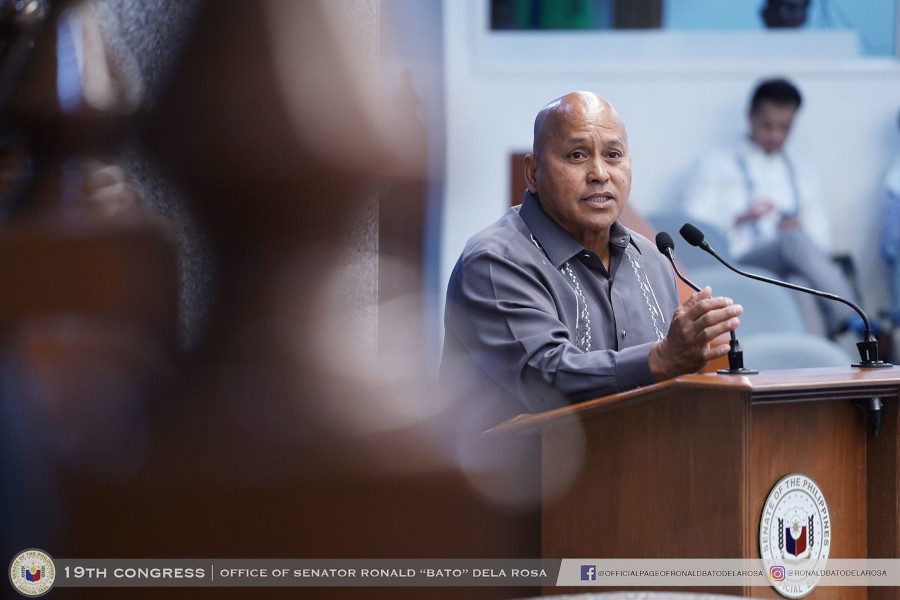Sen. Ronald “Bato” Dela Rosa, former chief of the Philippine National Police (PNP), claimed that an investigation by the International Criminal Court (ICC) of the drug-related killings under the Duterte administration violates the complementarity principle of the Rome Statute. This is misleading.
At the same time, he repeated the previously debunked claim that the Netherlands-based court has no jurisdiction to investigate the killings since the Philippines already withdrew its membership in the ICC in 2019. This needs context.
Dela Rosa’s statements came a week after the ICC’s Pre-Trial Chamber I authorized the resumption of a full-blown investigation into Duterte’s bloody war on drugs and the Davao Death Squad (DDS) killings from 2011 to 2016 when he was Davao City mayor. (Read ICC resumes full-blown investigation into Duterte administration’s drug war)
STATEMENT
During an interview on CNN Philippines’ The Source, anchor Ria Tanjuatco-Trillo asked Dela Rosa if he would cooperate in the ICC’s investigation. The senator replied:
“As I have said, they don’t have jurisdiction over us so I have no plans of cooperating with them.”
Source: CNN Philippines official YouTube channel, Senator Bato Dela Rosa | The Source, Feb. 2, 2023, watch from 8:42 to 8:52
Later in the interview, he also said:
“Nasasabi nga (It has been said), very clear in the principle of complementarity, na (that) ICC will conduct its probe if the government is number one, not capable in (sic) investigating these alleged crimes. Number two, if the government is not capable and not willing. So, in both cases the government is capable and investigating… and, in fact, it is very much willing to investigate. In fact, it is doing its own investigation. So, they’re the ones violating this provision of the Rome Statute. According to them, they are not satisfied with the investigation that is going on. Who the hell are they to impose their standards on us?”
Source: watch from 10:32 to 11:27
FACT
The ICC has stated that its investigation is intended to complement, not replace, domestic justice systems. In its official website, the court explains that it only prosecutes cases when states are “unable or unwilling” to do so.
In its authorization document, the Pre-Trial Chamber I noted that the Philippines has investigated only “low-ranking” police officers and “does not contest” the ICC prosecution’s suggestion that it failed to look into “the systemic nature of crimes, or investigate individuals who would appear to be most responsible.”
Dela Rosa also missed the fact that Article 127 paragraph 2 of the Rome Statute clearly states that a country that withdrew from the treaty is not cleared of its obligations when it was still a state party.
The Philippines ratified the Rome Statute in November 2011, thus binding the country to its provisions from that date until March 17, 2019 when its withdrawal from the ICC became official.
The ICC Office of the Prosecutor’s investigation covers the alleged extrajudicial killings committed during the war on drugs from Nov. 1, 2011 to March 16, 2019. These include the 2011-2016 DDS killings that occurred when Duterte was mayor of Davao City. The much-feared DDS was a vigilante group behind the alleged disappearance and summary execution of hundreds of street children and individuals accused of petty crimes and drug dealing.
To justify its investigation, the chamber wrote: “The domestic proceedings in the Philippines thus do not sufficiently mirror the expected scope of the court’s investigation, since they only address the physical, low-ranking perpetrators and at present do not extend to any high-ranking officials.”
This is the second point that Dela Rosa skipped: In pursuing its own investigation, the ICC is going after top state officials who may be responsible for crimes against humanity but are not being investigated by the Philippines. This is where the principle of complementarity is violated and the justification for the resumption of ICC’s probe.
For instance, the two policemen convicted in the 2017 murder of 17-year-old Kian Delos Santos were a patrolman, the lowest rank in the PNP, and a chief sergeant. The ICC Office of the Prosecutor, in its 2021 authorization request to investigate drug-related crimes and the Davao killings, noted that the Delos Santos’ case is the only one that has reached judgment.
Article 8, paragraph b of the Rome Statute states that the ICC will hold a superior responsible for crimes committed by a subordinate with his knowledge or if the superior failed to submit to domestic investigations or prosecutions.
Neither Duterte nor Dela Rosa, the two officials named in the ICC Office of the Prosecutor’s 2021 investigation request, is facing charges in a local court for alleged involvement in the drug war or the DDS killings. Both continue to question the ICC’s jurisdiction over these violent incidents that happened during their watch.
Articles 5 to 9 of the Rome Statute, the treaty that established the ICC, enumerate the types of crimes that the ICC tackles: genocide, crimes against humanity, war crimes and crimes of aggression.
“[G]iven the Court’s role and purpose, and the fact that the authorized investigation concerns alleged crimes against humanity, high-ranking officials are expected to be the investigation’s focus,” the Pre-Trial Chamber I wrote in its authorization to resume the probe on the Philippines’ drug war and the 2011 to 2016 Davao Death Squad killings.
Local prosecutors can investigate alleged crimes against humanity committed in the Philippines under Republic Act 9851 or the Philippine Act on Crimes Against International Humanitarian Law, Genocide, and Other Crimes Against Humanity. In cases where victims died or suffered “serious physical injury,” persons found guilty can face imprisonment of up to 40 years with fines ranging from P500,000 to P1 million.
Have you seen any dubious claims, photos, memes, or online posts that you want us to verify? Fill out this reader request form.
Sources
CNN Philippines official YouTube channel, Senator Bato Dela Rosa | The Source, Feb. 2, 2023
International Criminal Court, How the Court Works, accessed on Feb. 6, 2023
International Criminal Court, Rome Statute, accessed on Feb. 3, 2023
International Criminal Court, Public Redacted Version of “Authorisation pursuant to article 18(2) of the Statute to resume the investigation”, Jan. 26, 2023
Official Gazette, R.A. 11200, March 25, 2019
International Criminal Court, Public redacted version of “Request for authorisation of an investigation pursuant to article 15(3)”, 24 May 2021, ICC-01/21-7-SECRET-Exp, June 14, 2021
Official Gazette, R.A. 9851, July 27, 2009
(Guided by the code of principles of the International Fact-Checking Network at Poynter, VERA Files tracks the false claims, flip-flops, misleading statements of public officials and figures, and debunks them with factual evidence. Find out more about this initiative and our methodology.)




